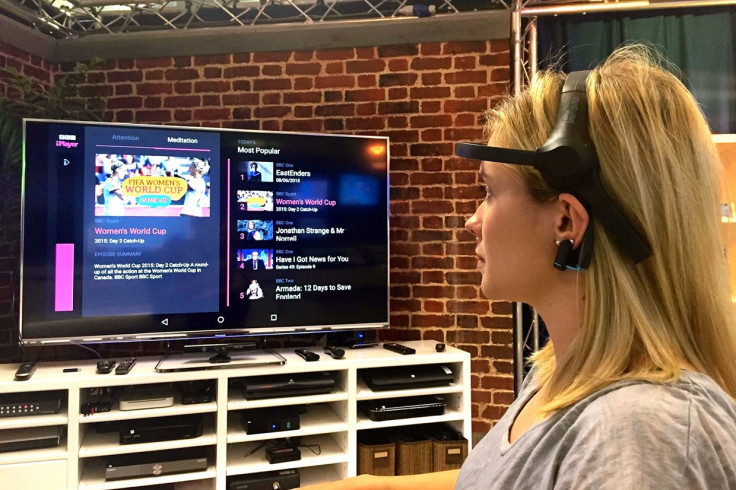BBC experiments with mind-controlled iPlayer app for disabled viewers

The BBC is experimenting with a version of its iPlayer on-demand video service that can be controlled by the mind.
Working in collaboration with a technology company called This Place, the broadcaster has developed a system where viewers can select programmes with nothing more than the power of thought – and a cheap, off-the-shelf headset to read their brainwaves.
The headset monitors how much the wearer is concentrating or meditating, and uses these signals to control the application. Pictures of BBC programmes are shown on screen for 10 seconds at a time, and if the viewer wants to watch one they concentrate on it for those 10 seconds.
Two sensors – one resting on the viewer's forehead and one that clips to their ear – work together to take an electroencephalographic (EEG) reading, measuring the brain's electrical signals. Concentration is visually depicted on the screen with a 'volume bar' of brainwaves, and once a certain level of concentration has been reached, the app starts playing the programme shown at that time.
In an initial trial, the technology, dubbed 'Mind Control TV', was tried out by 10 BBC staff, some of whom found it easier than others, but all were able to control it with practice. It is hoped the system could one day be used by people suffering from paralysis or locked-in syndrome, who would otherwise be unable to select programmes to watch or listen to.
"It's an internal prototype designed to give our programme makers, technologists and other users an idea of how this technology might be used in future," said Cyrus Saihan, head of business development at the BBC's digital division.
© Copyright IBTimes 2025. All rights reserved.






















